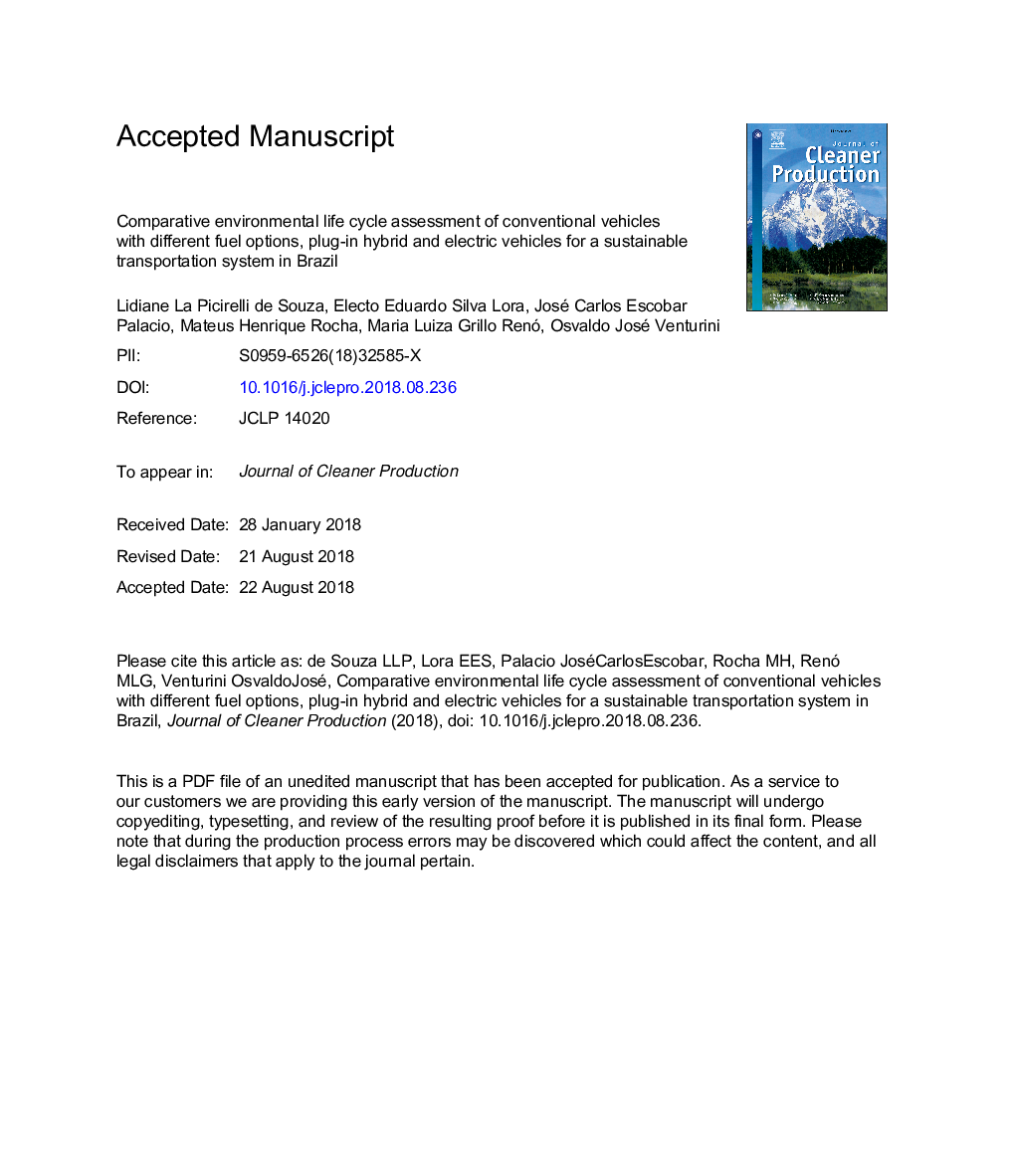| کد مقاله | کد نشریه | سال انتشار | مقاله انگلیسی | نسخه تمام متن |
|---|---|---|---|---|
| 8955743 | 1646105 | 2018 | 65 صفحه PDF | دانلود رایگان |
عنوان انگلیسی مقاله ISI
Comparative environmental life cycle assessment of conventional vehicles with different fuel options, plug-in hybrid and electric vehicles for a sustainable transportation system in Brazil
ترجمه فارسی عنوان
ارزیابی چرخه زندگی زیست محیطی خودروهای متعارف با گزینه های مختلف سوخت، وسایل نقلیه هیبریدی و الکتریکی برای سیستم حمل و نقل پایدار در برزیل
دانلود مقاله + سفارش ترجمه
دانلود مقاله ISI انگلیسی
رایگان برای ایرانیان
کلمات کلیدی
ارزیابی چرخه حیات، ارزیابی اثرات زیست محیطی، سوخت خودرو، موتور موتور احتراق داخلی، وسیله نقلیه الکتریکی هیبریدی پلاگین، خودرو الکتریکی باتری،
موضوعات مرتبط
مهندسی و علوم پایه
مهندسی انرژی
انرژی های تجدید پذیر، توسعه پایدار و محیط زیست
چکیده انگلیسی
The principal motivation of this work is to evaluate the existing fuel use (gasoline or ethanol) and new alternative source of power supply (electricity) for vehicles in Brazil, and to assess potential to consume less petroleum and non-renewable fuels, in order to reduce the air pollution and greenhouse gas emissions. In the literature, there are several relevant published works which focus on this topic for developed countries, and other countries, such as Brazil are not fully investigated; therefore this gap was a motivation for this study. The methods consider the fuel production, electricity generation and powertrain production, the vehicle use phase stages and powertrain end of life only, which includes the recycling of vehicles and batteries. The goal and scope of this study is to evaluate and to compare the environmental impacts of vehicles in the Brazilian context. A life cycle assessment is carried out in this paper to assess the well-to-wheels for different scenarios of fuels consumption and powertrains configurations for a vehicle. The five analyzed scenarios are: conventional internal combustion engine vehicle fuelled by gasoline, conventional internal combustion engine vehicle fuelled by hydrous ethanol, conventional internal combustion engine vehicle fuelled by a mixture of gasoline and hydrous ethanol (flex-fuel vehicle), plug-in hybrid electric vehicle and battery electric vehicle. The common functional unit assumed for the analysis was 1.0â¯km traveled. The results show that the scenarios that use ethanol as fuel have higher environmental impacts for the categories of acidification, eutrophication and photochemical oxidation. The scenarios using gasoline have the higher impacts for abiotic depletion, fossil fuels abiotic depletion potential and global warming potential. Vehicles using lithium ions batteries have the highest impacts for human toxicity. The battery electric vehicle has smallest environmental impacts in general way, followed by vehicles using ethanol. The Brazilian government should increase its investment and develop the use of electric vehicles, since the country's electric mix is renewable, as well as further encourage the use of ethanol, since it generates less environmental impacts than gasoline.
ناشر
Database: Elsevier - ScienceDirect (ساینس دایرکت)
Journal: Journal of Cleaner Production - Volume 203, 1 December 2018, Pages 444-468
Journal: Journal of Cleaner Production - Volume 203, 1 December 2018, Pages 444-468
نویسندگان
Lidiane La Picirelli de Souza, Electo Eduardo Silva Lora, José Carlos Escobar Palacio, Mateus Henrique Rocha, Maria Luiza Grillo Renó, Osvaldo José Venturini,
